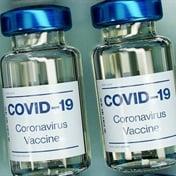- Curcumin, found in turmeric, could inactivate certain viruses
- A new study showed that the compound can prevent the virus TGEV from infecting cells
- TGEV is an alpha-group coronavirus that infects pigs and can cause death in piglets
The bright yellow-orange spice, known as turmeric, has seen a rise in consumer demand over the years – thanks to its scientifically-proven health benefits. A compound found in this versatile spice, known as curcumin, may also help to eliminate certain viruses. This is according to a recent study published in the Journal of General Virology.
The paper explains how curcumin can prevent the transmissible gastroenteritis virus (TGEV) – an alpha-group coronavirus that infects pigs – from infecting cells. At higher doses, curcumin was found to kill virus particles.
No effective treatment for TGEV
Infection with TGEV causes a disease called transmissible gastroenteritis in piglets, characterised by diarrhoea and vomiting. According to a 2018 study published in the Virology Journal, when the virus causes diarrhoea, it leads to 100% mortality in piglets under two weeks old. For this reason, it poses a huge threat to the global swine industry.
No effective treatments are currently available for the animals once they are infected, and while a vaccine is available for TGEV, it does not prevent the virus from spreading.
Before infecting the pigs with TGEV, the research team treated experimental cells with various concentrations of curcumin in order to determine its potential antiviral properties. They found that higher concentrations of the compound reduced the number of virus particles in the cell culture (the process by which cells are grown under controlled conditions – usually outside their natural environment).
Curcumin effect on TGEV
According to the team’s research, curcumin affects TGEV by:
- Directly killing the virus before it is able to infect the cell
- Integrating with the viral envelope to "inactivate" the virus
- Altering the metabolism of cells to prevent viral entry
"Curcumin has a significant inhibitory effect on TGEV adsorption and a certain direct inactivation effect, suggesting that curcumin has great potential in the prevention of TGEV infection," said Dr Lilan Xie, lead author of the study and researcher at the Wuhan Institute of Bioengineering.
Curcumin has been shown to inhibit the replication of other viruses such as dengue virus, hepatitis B and Zika virus. Xie explained that the team selected this particular compound for their research because of its low risk of side effects:
"There are great difficulties in the prevention and control of viral diseases, especially when there are no effective vaccines. Traditional Chinese medicine and its active ingredients are ideal screening libraries for antiviral drugs because of their advantages, such as convenient acquisition and low side effects," Xie said.
Further research, in vivo
The research team aims to continue their research in vivo, using an animal model. In vivo is when research is done with or within a living organism – unlike the team’s completed study, which was done in vitro, a study method done outside a living organism, i.e. in a laboratory.
"Further studies will be required to evaluate the inhibitory effect in vivo and explore the potential mechanisms of curcumin against TGEV, which will lay a foundation for the comprehensive understanding of the antiviral mechanisms and application of curcumin" said Xie.
READ | A new strain of swine flu has raised pandemic concerns – we spoke to an expert
READ | Routine childhood vaccine benefits outweigh Covid-19 risks, study finds
READ | Vaccine developments: Update on the SA trial, and more reaction to positive news from Oxford
Image: Prachi Palwe on Unsplash




 Publications
Publications
 Partners
Partners















